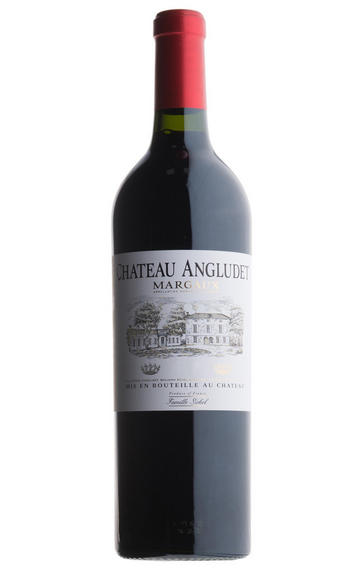
2019 Château Angludet, Margaux, Bordeaux
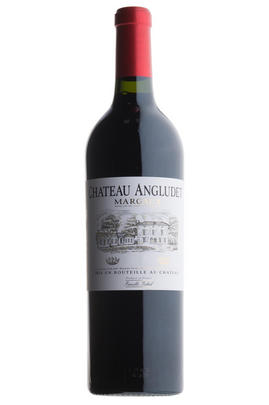
Critics reviews
The 2019 d’Angludet is the first vintage with partial aging in clay amphora (30%); around 35% of the barrels were new. I must confess that I like the aromatics here: macerated red cherries, crushed strawberry and raspberry fruit, a little earthiness and a hint of leather. The palate is medium-bodied with supple tannins, a fine bead of acidity, and clean, fresh fruit that merges into more tertiary, slightly peppery notes toward the finish. Fine.
Drink 2023 - 2038
Neal Martin, Vinous (December 2021)
The 2019 Angludet has a medium to deep garnet-purple color. It is a little closed to begin, soon offering glimpses at baked plums and cassis scents, followed by hints of pencil shavings, baking spices, and lilacs. The mediuml-bodied palate coats the mouth with generous black and blue fruits, framed by plush tannins and seamless freshness, finishing spicy.
Drink 2023 - 2040
Lisa Perrotti-Brown MW, The Wine Independent (May 2023)
45% Cabernet Sauvignon, 43% Merlot, 12% Petit Verdot.
Tasted blind. Looks relatively evolved. Strong Cabernet (or Petit Verdot?) aromas. Sweet and gentle on the palate – little tannin in evidence. A sweet charmer for the relatively short term.
Drink 2025 - 2033
Jancis Robinson, JancisRobinson.com (January 2023)
The 2019 D'Angludet has turned out nicely in bottle, delivering aromas of earthy red and black fruits, followed by a medium to full-bodied, supple and seamless palate with a sweet core of fruit, ripe tannins and lively acids. This elegantly fleshy wine is reminiscent of a modern-day version of the 1989.
Drink 2023 - 2045
William Kelley, Wine Advocate (April 2022)
Ripe, fruity character here, with aromas of cassis, blackberries, licorice, dark chocolate and walnuts. Medium-bodied with a polished, creamy texture, firm tannins and a chocolatey mouth-feel. Deep core of fruit and a meaty structure. Succulent and refined. Try after 2024 and onwards.
James Suckling, JamesSuckling.com (March 2022)
Sweet damson and red cherry fruit, notable creaminess on the attack, with light grilled cedar notes. Not the most intense Margaux in 2019, but easily one of the more supple, inviting and easy to love. Clear Margaux signature with delicate violet flowers on the aromatics. Definitely one to look out for from the Sichel family.
Drink 2023 - 2036
Jane Anson, Decanter (May 2020)
Checking in as 46% Cabernet Sauvignon, 43% Merlot, and the balance Petit Verdot, the ruby-hued 2019 Château D'Angludet offers up a pretty nose of red and blue fruits, exotic flowers, orange zest, and flowers, and it has an incredibly exotic, floral, almost tropical vibe in its aromatics. Medium-bodied on the palate, with silky tannins and good overall balance, it's not a blockbuster but has considerable charm. I suspect it will benefit from 2-4 years of bottle age and impress over the following 10-15 years.
Drink 2024 - 2041
Jeb Dunnuck, JebDunnuck.com (April 2022)
About this WINE
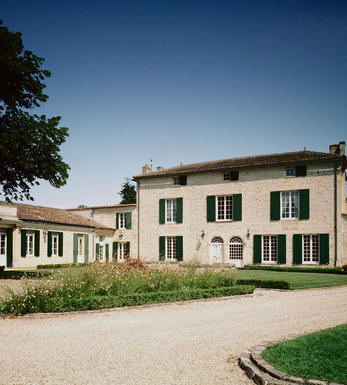
Château Angludet
Château d`Angludet is a Cru Bourgeois property that now regularly produces wines of grand cru classé quality. D'Angludet is located in the Margaux appellation and its vineyards are situated at the 3-way intersection of the Cantenac, Arsac and Labarde communes.
The late Peter Sichel purchased d'Angludet in 1961 and it became his home for the next 37 years. The vineyards and cuverie were in a deplorable condition when Sichel took over and it is due to his sheer will and determination that d`Angludet enjoys its high reputation today.
D'Angludet's 32 hectares of vineyards are planted with Cabernet Sauvignon (58%), Merlot (35%), Cabernet Franc (5%) and Petit Verdot (2%). The grapes are fermented in temperature-controlled, stainless steel tanks and the wine is then aged in oak barriques (25-33% new) for 12 months. The wine is bottled unfiltered.
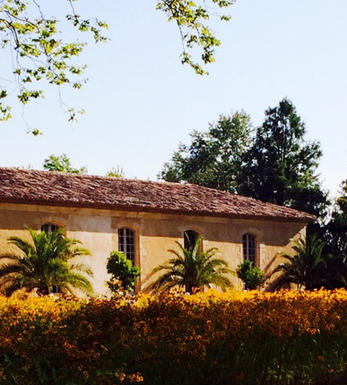
Margaux
If Pauillac can be seen as the bastion of ‘traditional’ Red Bordeaux, then Margaux represents its other facet in producing wines that are among Bordeaux’s most sensual and alluring. It is the largest commune in the Médoc, encompassing the communes of Cantenac, Soussans, Arsac and Labaude, in addition to Margaux itself. Located in the centre of the Haut-Médoc, Margaux is the closest of the important communes to the city of Bordeaux.
The soils in Margaux are the lightest and most gravelly of the Médoc, with some also containing a high percentage of sand. Vineyards located in Cantenac and Margaux make up the core of the appelation with the best vineyard sites being located on well-drained slopes, whose lighter soils give Margaux its deft touch and silky perfumes. Further away from the water, there is a greater clay content and the wines are less dramatically perfumed.
Margaux is the most diffuse of all the Médoc appelations with a reputation for scaling the heights with irreproachable wines such as Ch. Margaux and Ch. Palmer, but also plumbing the depths, with too many other châteaux not fulfilling their potential. There has been an upward shift in recent years, but the appellation cannot yet boast the reliability of St Julien. However, the finest Margaux are exquisitely perfumed and models of refinement and subtlety which have few parallels in Bordeaux.
Recommended Châteaux: Ch. Margaux, Ch. Palmer, Ch. Brane-Cantenac, Ch. Rauzan-Ségla , Ch. Dufort-Vivens, Ch. Ferrière, Ch. du Tertre, Ch. Giscours, Ch. d'Angludet.
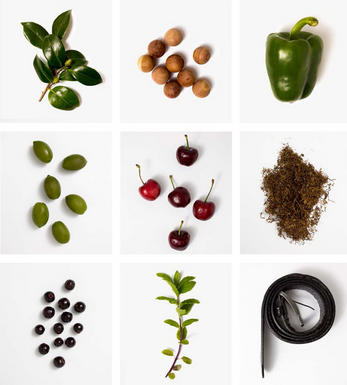
Cabernet Sauvignon Blend
Cabernet Sauvignon lends itself particularly well in blends with Merlot. This is actually the archetypal Bordeaux blend, though in different proportions in the sub-regions and sometimes topped up with Cabernet Franc, Malbec, and Petit Verdot.
In the Médoc and Graves the percentage of Cabernet Sauvignon in the blend can range from 95% (Mouton-Rothschild) to as low as 40%. It is particularly suited to the dry, warm, free- draining, gravel-rich soils and is responsible for the redolent cassis characteristics as well as the depth of colour, tannic structure and pronounced acidity of Médoc wines. However 100% Cabernet Sauvignon wines can be slightly hollow-tasting in the middle palate and Merlot with its generous, fleshy fruit flavours acts as a perfect foil by filling in this cavity.
In St-Emilion and Pomerol, the blends are Merlot dominated as Cabernet Sauvignon can struggle to ripen there - when it is included, it adds structure and body to the wine. Sassicaia is the most famous Bordeaux blend in Italy and has spawned many imitations, whereby the blend is now firmly established in the New World and particularly in California and Australia.


Buying options
Add to wishlist
Description
The 2019 d’Angludet is the first vintage with partial aging in clay amphora (30%); around 35% of the barrels were new. I must confess that I like the aromatics here: macerated red cherries, crushed strawberry and raspberry fruit, a little earthiness and a hint of leather. The palate is medium-bodied with supple tannins, a fine bead of acidity, and clean, fresh fruit that merges into more tertiary, slightly peppery notes toward the finish. Fine.
Drink 2023 - 2038
Neal Martin, Vinous (December 2021)
wine at a glance
Delivery and quality guarantee